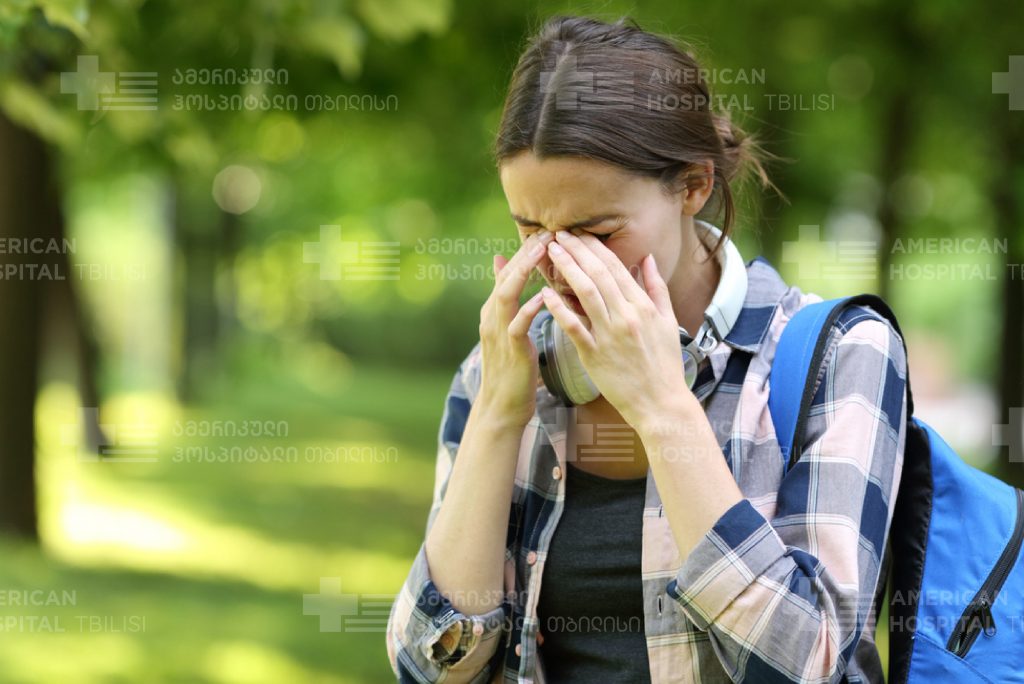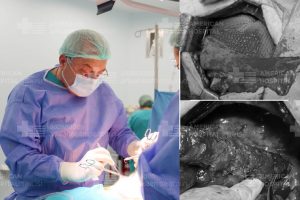If you suffer from sneezing, runny nose, burning eyes, itching, difficulty of breathing, a terrible discomfort in the areas of the nose, throat and eyes, then you have allergic rhinoconjunctivitis. If allergic rhinoconjunctivitis is related to the season and/or plant pollen, you are suffering from pollinosis or seasonal rhinoconjunctivitis. In such a case, be sure to contact with the American Hospital Tbilisi Allergology Department, where you will receive a complete allergological consultation and, if necessary, an examination. Entrust your life and health to such a professional as academic doctor of medicine, associate professor, allergologist-immunologist, Dr. Lali Bugadze.
The doctor says that the sensations associated with allergic rhinoconjunctivitis and pollinosis, at first glance, are very mild and easy to detect, but at the same time, they cause considerable discomfort to the patient and interfere with daily life. Dr. Lali Bugadze explains that there is a very high chance that seasonal allergic rhinitis will be complicated by a bacterial infection, which causes further complications.
“It is already infectious conjunctivitis, when discharge appears from the eye, as well as sinusitis, when allergic rhinitis, including pollinosis, may be complicated. Are you wondering what to do at such a time? The answer is simple, while allergology is gathering strength, trying to fight allergic diseases and still in the development stage, we have various tools to make people’s daily life easier. The best thing in case of allergic rhinoconjunctivitis is prevention. The patient should have enough information first from the family doctor, and if he/she is referred to an allergologist. For example, we know that we have seasonal allergic rhinitis and we know approximately the date when these symptoms can start. Consult an allergologist two weeks or 10 days prior, and you will have a chance to overcome this period without any complaints, using modern means”, says Dr. Lali Bugadze.
In terms of allergic complications, March is one of the hardest months. Dr. Lali explains that it is during this period that many plants bloom that cause allergic symptoms in their entirety: nose, eyes, to which cough is added, and if the patient has a tendency to asthmatic events, asthmatic problems may become complicated.
“Considering that the number of allergic patients is increasing every day, the statistics are not so reliable. While there are modern means of treatment, and important ways of prevention, it is necessary to timely inform the patient, to include modern methods of diagnosis and treatment in order to obtain the best results. Our goal is to create maximum comfort for the patient so that allergic symptoms do not disrupt the patient’s daily life. The basis of all this, if necessary, is the timely involvement of an allergologist-immunologist”, says Dr. Lali Bugadze, an allergologist-immunologist at American Hospital Tbilisi.





